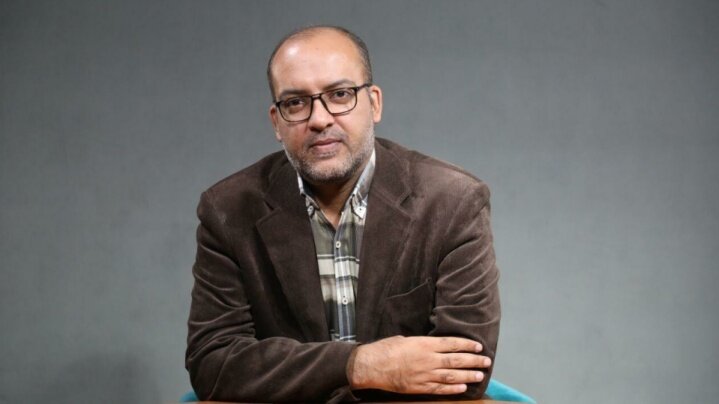UN human rights mandates are politically motivated: Iranian expert

TEHRAN – In an interview with the Tehran Times, Dr. Hesamuddin Boroumand, a human rights expert and scholar, challenged the legitimacy of the UN’s Special Rapporteur and fact-finding mission on Iran, noting their politicized agendas and Western bias.
The full text of the interview is as follows:
The UN Human Rights Council has once again extended the mandate of the Special Rapporteur on human rights in Iran, along with the so-called fact-finding mission, despite repeated objections from Iran. What do you believe is the real purpose behind this continuation?
The very basis for appointing a Special Rapporteur on human rights for Iran—something that started in 2011—lacks legal and legitimate standing. Iran had already been cooperating positively on human rights issues through the UPR (Universal Periodic Review) mechanism, and had provided documented responses to questions and doubts. Therefore, the appointment of the Special Rapporteur was entirely political and biased. From 2011 until now, four rapporteurs—Ahmed Shaheed, Asma Jahangir, Javaid Rehman, and Mai Sato—have acted based on political motives and human rights pressure against Iran. In fact, their collective reports read like dictated statements from anti-Revolution forces.
The aim of renewing the Special Rapporteur’s mandate is to keep the pressure and human rights attacks against Iran alive. Now that the so-called fact-finding mission has also been renewed, the goal is to work in tandem with the Special Rapporteur to implement biased human rights scenarios against Iran.
Ms. Mai Sato, the current Special Rapporteur, has focused heavily on capital punishment, without distinguishing between execution and “qisas” (retributive justice). What is your response to this approach?
Her approach reflects a deliberate continuation of the flawed methods of previous rapporteurs. She seems determined to portray Iran as a violent nation, ignoring legal and religious distinctions between execution and qisas. Essentially, Iran is being condemned for taking legal action against drug traffickers, murderers, and those who commit severe crimes against society. Under the label of human rights, she's defending individuals who have harmed public safety and violated others’ rights.
Unlike her predecessors, Ms. Sato does not come from a Muslim background. Do you see this as a shift in the UN’s approach?
The previous three rapporteurs were Muslim according to written guidelines, although they were not committed to Islamic teachings. Mr. Ahmed Shaheed, in his first report, accused Iran of violating human rights over its inheritance laws, even though inheritance is a Qur’anic injunction.
Ms. Sato doesn’t even have the outward appearance that the previous three rapporteurs had, and clearly, she has been placed in this role as a woman—under the banner of the so-called “Woman, Life, Freedom” movement—to make the narrative more believable to public opinion.
There appears to be a significant presence of women in both the Special Rapporteur’s team and the fact-finding mission. Do you think this is part of a broader strategy?
Yes, this is part of a calculated effort to frame the human rights narrative with a gendered façade. The idea is to create the impression of defending women’s rights while pushing a larger agenda. They are trying to turn the situation of women in Iran into a crisis—the “women’s issue”—and use it as a tool to interfere in Iran’s internal affairs. Behind this campaign are Western powers, particularly the United States, which seek to undermine Iran’s traditional family structure. They promote Western gender models while deliberately sidestepping the concept of family rights, which is where their own systems are most vulnerable.
The fact-finding mission has accused Iran of creating a “climate of fear and systemic impunity.” How do you view these allegations?
The so-called fact-finding mission was created following the 2022 unrest in Iran, and its basis is political, aimed at exerting human rights pressure on the country. Everyone saw how Netanyahu—the war criminal who committed genocide in Gaza—openly supported the fabricated “Woman, Life, Freedom” movement. That alone showed which regimes were behind the movement. And yet, the United Nations appoints a so-called fact-finding mission to investigate Iran.
While Iran is targeted over human rights issues, Western governments remain silent about the ongoing atrocities in Gaza. How can this double standard be exposed?
The West has lost all credibility on human rights. Today, the genocide and collection of crimes happening in Gaza are backed by the West and funded by the United States.
The West stands disgraced today. Gaza is the crime scene of those who claim to defend human rights, and the Western narrative on human rights no longer holds any weight.
You’ve said Iran should not remain passive when it comes to human rights accusations. What kind of approach do you have in mind?
We must not remain passive on the issue of human rights. Iran must launch both defensive and offensive human rights efforts on a global scale. Today, the Zionist regime is despised around the world, and the anti-Israel movement is growing by the day. Iran must disrupt the political and biased human rights game played by Western countries.
Specifically, our Ministry of Foreign Affairs and the Human Rights Headquarters must coordinate and define multiple programs and scenarios in the fields of human rights defense and counter-offense. In international forums, we must change the false equation of Western human rights in favor of all the oppressed and freedom-seeking people of the world.
Leave a Comment